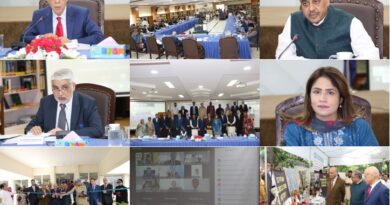Journalist Training Courses Are Needed to Fight “Fake News”
The fight against false news is more important than ever in a time when digital platforms are the primary means of quick information distribution. As defenders of integrity and the truth, journalists are essential in halting this trend. But the spread of false information poses a specific problem that calls for specialised training to provide journalists the abilities and resources they need to successfully negotiate this complicated environment.
The goal of journalism has always been to expose falsehoods and give readers accurate information. But the proliferation of disinformation on an unprecedented scale has been made possible by the emergence of social media and internet platforms. Quickly spreading rumours, fake news, and edited information may deceive millions of people and undermine confidence in established media sources.
In response to this issue, journalistic education programmes have developed to include extensive courses aimed at identifying, confirming, and disproving false information. Digital literacy, ethical reporting standards, and critical thinking are highlighted in these programmes.
In the era of false news, teaching journalists to evaluate the reliability of sources and information is a vital component of their training. This entails confirming the legitimacy of sources, cross-referencing data with several trustworthy sources, and closely examining the context in which data is given out.
Journalists are also taught to spot common misinformation-spreading strategies include manipulating photos or videos, creating attention-grabbing headlines, and selective editing. Journalists can detect and refute false narratives more skillfully if they are aware of these strategies.
Programmes for training journalists also emphasise the significance of moral reporting techniques in the battle against false information. Preserving the values of truthfulness, equity, and openness is crucial for preserving the credibility of journalism and halting the dissemination of false information
Journalist training programmes provide equal emphasis on digital literacy and technological competency in addition to conventional media abilities. Journalists need to be proficient in using digital platforms and technologies for research, verification, and proper information dissemination. This entails making use of social media monitoring apps, data analysis tools, and fact-checking websites.
Furthermore, cooperation and knowledge exchange between fact-checkers, journalists, and IT specialists are critical in the fight against false information. In order to promote a comprehensive strategy for combating disinformation, training programmes frequently include multidisciplinary collaboration.
The Ministry of Information and Broadcasting’s Pakistan Information Centre PsdP initiative was the only one to educate hundreds of journalists in “Fake News and Investigative Journalism” in less than a year. These kinds of programmes for developing the capacity of journalists must be regularly continued by the Pakistani government. The only method to distinguish between real news and fake news is via awareness seminars and training sessions; there are no reliable technological or toolkits available to combat false information or fake news.

